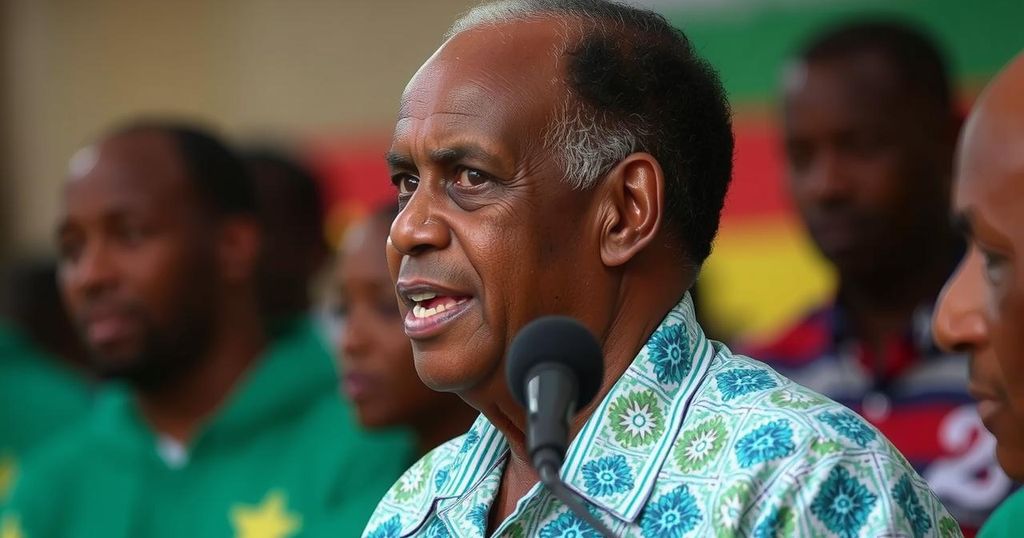Mozambique Unrest Claims Lives After Top Court Upholds Controversial Election
Unrest in Mozambique has resulted in at least 21 deaths following the top court’s confirmation of Frelimo’s election victory. Protests are fueled by accusations of electoral fraud and longstanding grievances related to corruption and unemployment. Over 236 acts of violence have been reported, prompting increased security measures by authorities. Opposition leaders have called for resilience amid challenging days ahead.
In Mozambique, widespread unrest has erupted following the recent validation of election results by the country’s top court, which confirmed the victory of the ruling party, Frelimo. Since the announcement, at least 21 individuals, including police officers, have lost their lives, according to Interior Minister Pascoal Ronda. Reports indicate that over 236 incidents of violence have occurred, leading to injuries among both civilians and law enforcement officers, and bringing the total casualties to more than 130 since late October.
The protests initiated as reactions to the Constitutional Council’s endorsement of Frelimo’s electoral success. Opposition groups and protesters have vocally condemned the October elections as fraudulent, alleging the voter turnout and counting processes were manipulated. In response, authorities have heightened security measures across the nation, including increasing military presence in strategic locations to maintain order and protect public facilities subjected to vandalism and unrest.
Protesters, fueled by longstanding grievances of corruption and unemployment, have resorted to civil disobedience tactics, such as blocking roads and igniting debris as a means of expressing their disenfranchisement. Following the announcement of Frelimo’s Daniel Chapo as president, opposition candidate Venancio Mondlane called for his supporters to brace for challenging times ahead while vowing that “victory is guaranteed for all of us.”
Mozambique’s history of electoral disputes and subsequent violence serves as a backdrop to the current turmoil, as opposition factions and civil society groups accuse the government of excessive force in suppressing dissent. As the situation develops, the nation faces the prospect of prolonged instability unless resolutions can be obtained through dialogue or negotiations.
Mozambique’s political landscape has been marred by tensions and allegations of electoral malpractice, particularly surrounding the elections held on October 9. The ruling Frelimo party has faced accusations from opponents and international observers regarding vote rigging and other violations of electoral integrity. Following the electoral authorities’ declaration of Daniel Chapo as president, dissatisfaction among the population has surfaced, intensifying calls for accountability and a reevaluation of the country’s governance amid growing frustrations over corruption and economic hardships. Past instances of unrest indicate a continued cycle of violence in response to perceived governmental failures.
The confirmation of Frelimo’s election victory has led to significant unrest, resulting in the loss of at least 21 lives amid reported escalations in violence across Mozambique. With the population expressing discontent over allegations of electoral dishonesty and long-standing economic challenges, the situation remains volatile. Without constructive engagement between the government and opposition groups, Mozambique may continue to face significant civil discord.
Original Source: www.aljazeera.com




Post Comment